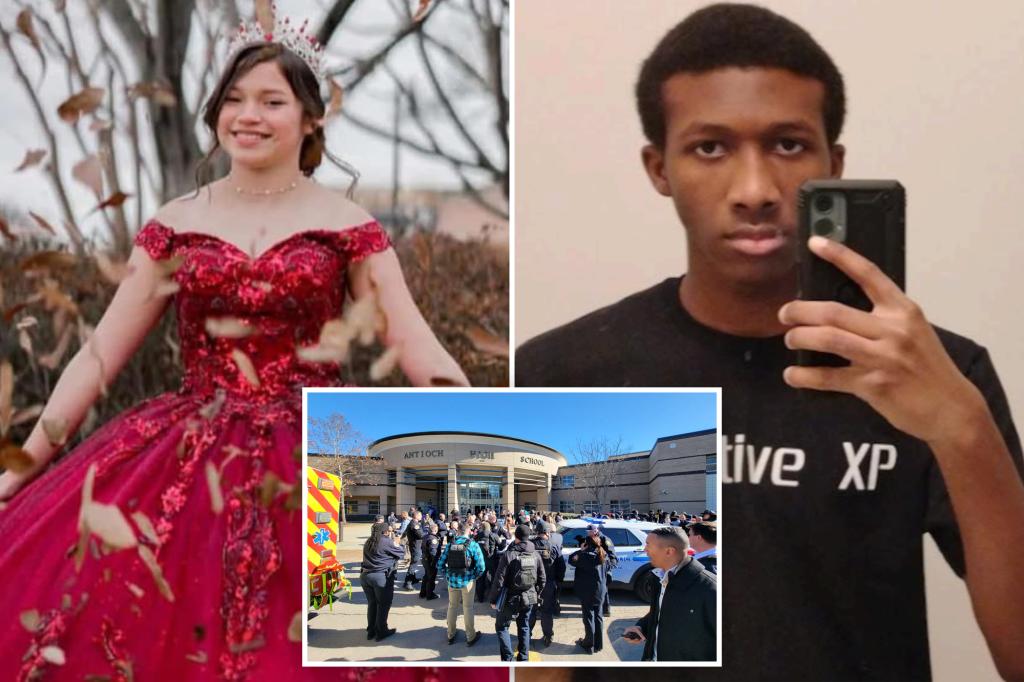The tragic shooting at Antioch High School in Nashville, Tennessee, has left a community reeling and a family shattered. Sixteen-year-old Josselin Corea Escalante, a beloved daughter and sister, lost her life in a senseless act of violence perpetrated by a troubled classmate, 17-year-old Solomon Henderson. Josselin’s father, German Corea, expressed his profound grief, lamenting the finality of their parting. He recounted his daily affirmations of love for his daughter, a sentiment now tinged with the agonizing realization that he will never have the opportunity to express it again. The pain of a parent’s loss is immeasurable, amplified by the sudden and violent nature of Josselin’s death. The act leaves behind a void that can never be filled, a constant reminder of a life brimming with potential, tragically cut short.
The circumstances surrounding the shooting paint a disturbing picture of Henderson’s troubled mindset. He identified as an “incel,” a term used to describe individuals who feel involuntarily celibate and harbor resentment towards those they perceive as romantically successful. Henderson’s online activity revealed a complex web of hateful ideologies, including racism, antisemitism, and misogyny, all contributing to a distorted worldview. His social media posts expressed shame about his own racial identity, coupled with disturbing admiration for Adolf Hitler and other mass shooters. He also shared content from the Goyim Defense League, a known neo-Nazi white supremacist group, further illustrating his descent into extremist ideologies. This complex tapestry of hate, self-loathing, and violent fantasies ultimately culminated in the tragic events at Antioch High School.
Henderson’s online presence also revealed a preoccupation with the “incel” community, a group known for its misogynistic views and often violent rhetoric. While the exact motivation behind Henderson’s actions remains under investigation, his identification with this group suggests a possible link between his feelings of social isolation and the tragic outcome. Experts on online extremism point to the potential for these echo chambers to amplify existing prejudices and encourage violent tendencies. The anonymity and validation found within these communities can create a dangerous feedback loop, normalizing extreme views and potentially inciting real-world violence.
The Anti-Defamation League (ADL), an organization dedicated to combating antisemitism and other forms of bigotry, highlighted the complex interplay of factors that likely contributed to Henderson’s radicalization. Carla Hill, a representative of the ADL, noted that within incel forums, individuals of color are often told their inability to find romantic partners is solely due to their race. This distorted narrative can push these individuals towards other extremist ideologies, as appears to be the case with Henderson. His embrace of white supremacist views, alongside his self-proclaimed shame about being Black, suggests a deeply conflicted sense of identity, potentially exacerbated by the toxic environment of online hate groups.
Beyond his affiliation with the incel community and white supremacist groups, Henderson’s online activity also displayed a fascination with violence. He reportedly shared images of guns and ammunition, along with a layout of his high school, suggesting a premeditated plan. He even partially livestreamed the shooting on the Australian platform Kick, a detail that further underscores the performative nature of his violence. This act of broadcasting the tragedy suggests a desire for recognition and notoriety, a disturbing trend seen in other mass shootings. The platform’s subsequent apology highlights the ongoing struggle to moderate online content and prevent the spread of harmful material.
The aftermath of the shooting has left the community grappling with grief and searching for answers. Josselin’s family remembers her as a bright, loving young woman with a passion for soccer and a dedication to her studies. Her aunt, Maria Corea, described her as a “daddy’s girl” and a caring older sister, highlighting the devastating loss felt by the entire family. The contrast between Josselin’s vibrant life and its tragic end serves as a stark reminder of the devastating consequences of hate and violence. The community now faces the difficult task of healing and seeking ways to prevent similar tragedies from occurring in the future. The focus remains on supporting Josselin’s grieving family and addressing the underlying issues that contributed to this senseless act of violence, including the dangers of online radicalization and the need for greater access to mental health resources.

